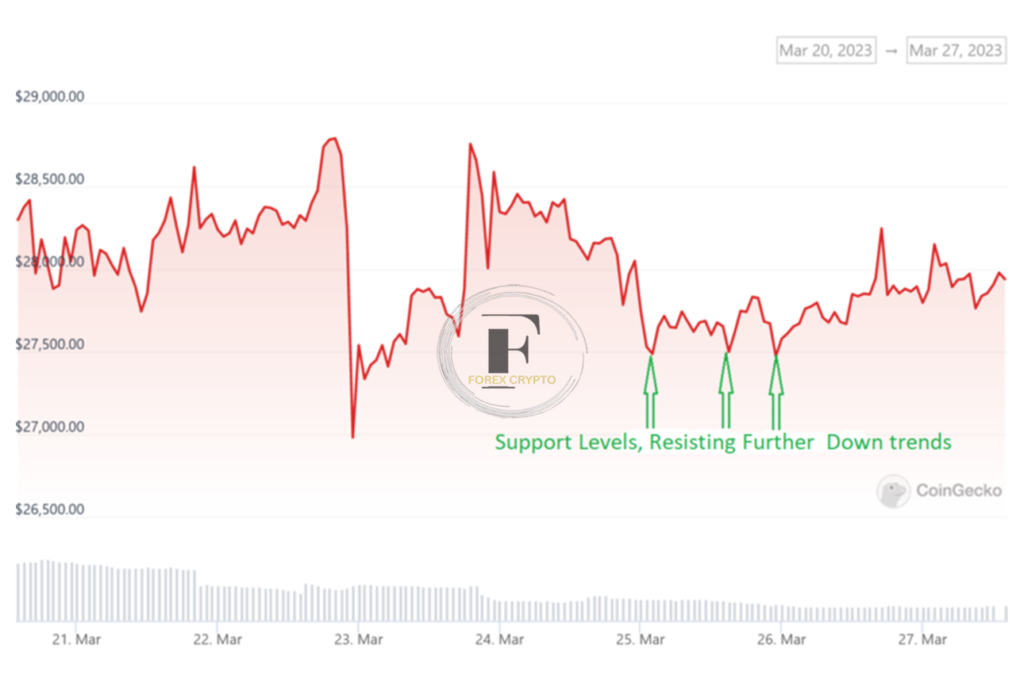Financial markets – an overview
- Consider the grocery store in your area. There must be a large number of booths here. And there is always a flurry of activity there. It’s safe to assume that if we asked you to define your neighborhood marketplace, you’d describe it as a location where people may buy and sell items.
- Then, how should we define the financial markets? In the same way that your neighborhood market sells various goods, the financial markets specialize in buying and selling a single commodity: financial assets. Stocks, bonds, commodities, and even currency are all examples of possible financial assets.
- Capital markets, or just the markets, are another name for the financial markets. No matter what you call them, the financial markets are regulated exchanges where various financial assets are bought and sold.
What are financial markets?
- The phrase “financial markets” describes the exchange venues for monetary assets. Stocks and bonds are examples of financial assets. Stock, bond, currency, commodity, and derivative markets are the only subsets that make up the larger financial markets.
- There are regulated financial markets and unregulated financial markets. Prices of financial assets traded in financial markets continue to fluctuate for various reasons, just as in any marketplace. Traders and investors anticipating these price changes might profit by participating in them.
A brief look at the changes that have occurred in the financial markets.
- Various vendors may yell their wares’ prices at passersby in semi-urban regions and weekend marketplaces. Historically, this was the most common method of exchange between buyers and sellers. In contrast, modern shopping centers and supermarkets keep their customers comfortable year-round. In addition, numerous internet markets have also emerged in recent years.
- The financial markets have changed dramatically throughout time, similar to traditional markets. A few short decades ago, buyers and sellers met face-to-face in real locations known as “financial markets” to complete their financial transactions. The open outcry trading method was the most well-known kind of trading at the time.
- However, all transactions in such marketplaces are now conducted online due to technological advancements. You and I, as well as any other buyer or seller, may thus do business regardless of our physical locations, thanks to the magic of the internet. However, many financial markets still use the ‘open outcry system.’
- The financial markets’ appeal has surged since technology took over them. The financial markets are now responsible for billions of dollars in daily activity, with millions of deals taking place every second. Wow, that’s pretty remarkable.
Functions of financial markets
As an answer to the question, “What exactly do you mean when you say financial markets? ” has been answered. Now, let’s talk about the roles they play. Contrary to popular belief, financial markets serve more purposes than just being meeting places for buyers and sellers. Let’s examine a few of the other roles that financial markets play.

They enable the mobilization of money
- Do some pondering on it? If you put aside part of your earnings, they will sit there doing nothing until you decide to put them to use. However, investing in the financial market is a great way to put your money to work for you. Thus, financial markets facilitate matching capital providers with those in need of financing.
- Not only do they help you put that idle cash to better use, but they also help you get it back into the economy. A nation’s economy can only thrive if money is freely flowing throughout the economy.
They help determine the price of assets
- A commodity’s value changes as a result of supply and demand. Do you remember the basics of economics from elementary school? The cost of an item goes up when demand exceeds supply. When there’s more supply than demand, costs go down. The market price is based on the equilibrium between supply and demand. This is also true in the financial markets.
- Consistently and persistently, it is clear that demand and supply are two of the essential elements that drive global economic systems. One is essential to the economy’s health, but both can function independently. These two factors are what drive the financial markets and, in turn, help establish the prices at which financial assets are exchanged. These exchanges are necessary for the valuation of financial assets to be haphazard at best.
They ensure the liquidity of the assets
- A measure of an asset’s liquidity is its ease of being bought, sold, or converted into cash. For clarity, let’s use an analogy to break it down even more.
- For this reason, gold is often seen as a very liquid investment option. The reason for this is the extreme popularity of metal. On the other hand, real estate is less liquid than other assets since it cannot be sold rapidly.
- The financial markets facilitate the selling and acquisition of goods and services transparently and fairly. In addition, they guarantee the financial assets are liquid by facilitating their acquisition and sale. In other words, in these marketplaces, locating a buyer or seller does not require a great deal of travel time or effort.
They help save time and money
- Taking into account the concept of liquidity and the fact that you can find a buyer or a seller instantly, financial markets are incredibly efficient and save a lot of time for all parties involved. Not just that. They also help you save the time you would have spent searching for potential buyers or sellers.
- The financial markets have become entirely electronic, which has resulted in a dramatic reduction in transaction fees and other expenses. As a result, you’ll be able to save considerable money.

Advantages and Disadvantages of Financial Markets
Advantages
Here are some of the market’s advantages:
- It provides a medium for companies to get financing for long-term and short-term projects.
- Instead of taking out a high-interest loan from a commercial bank, businesses can acquire finance at a lower overall cost. Not only that, but commercial banks often need to provide loans of significant size.
- A company may raise cash from shareholders whenever it needs to, up to the amount of its authorized share capital.
- Intermediaries like banks and FIs provide firms and investors with strategic and tactical financial guidance in the financial markets. In addition, they assist in the form of knowledge, guidance, and expert services that would otherwise be hard to come by.
- Various stocks, equities, bonds, derivatives, and other financial products may be traded and dealt with in a centralized location.
- Greater confidence amongst financiers and entrepreneurs is a critical factor in financial market legislation and regulation success, which in turn helps to build the economy.
- Establish a global marketplace for lending and borrowing monetary resources in several currencies.
Disadvantages
- Here, we see some of the problems with the financial system.
- It might take longer if regulatory bodies impose fewer processes.
- Certain companies are prohibited from entering the financial industry due to stringent regulations. They can’t set up resources that require continual checking for compliance and monitoring.
- Investors risk financial loss if they act without sufficient information.
- Investors may give way to profits as the primary motivation for companies. Therefore, the board must make decisions that are good for the firm and not try to use investor money for personal advantage.
Wrapping up
This is what these marketplaces look like, then. However, learning what financial markets are and the wide variety of forms they take is necessary for a complete understanding of this field. In the following section, we’ll go further into this topic.
A quick recap
- Markets for the exchange of financial instruments may take place online or in physical locations.
- Formerly, physical, financial markets relied on the ‘open outcry system’ to facilitate the trading of financial assets. However, due to technological advancements, modern financial markets are primarily online forums for the electronic trading of assets.
- The mobility of capital is made possible by the financial markets.
- They also play a role in establishing the value of monetary instruments.
- The capital markets are in place to assure the liquidity of financial assets.
- They facilitate trade while saving the user time, money, and energy.




Comments (No)